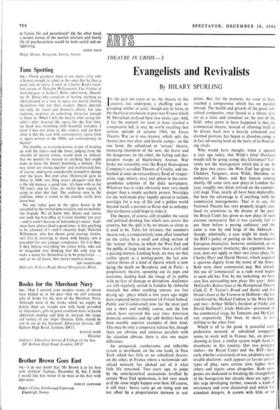Tune Spotting SIR,—Thank goodness there is one music critic who
is honest enough to admit in the open that he likes a good tune in opera. I refer to Charles Reid's excel- lent review of Malcolm Williamson's The Violins of Saint-Jacques at Sadler's Wells (SPECTATOR, Decem- ber 9). Those who complain of having anything so old-fashioned as a tune in opera are merely fooling themselves—but not their readers. Opera depends not only on visual and dramatic effects, but also (surprise, surprise) on something attractive enough to listen to. When 1 left the theatre after seeing (in- sults!—after hearing) the opera for the first time, my head was swimming with beautiful melodies. I know I was not alone in this respect, and yet how often is this the case with contemporary opera (that is, opera written in the 1960s, not contemporary in theme)?
The trouble, as everyone knows, is one of keeping up with the times—and the times, judging from the remarks of certain critics, would seem to indicate that we mustn't be treated to anything that might make us leave the theatre humming a melody. The way notes are strung together and orchestrated has, of course, undergone considerable (complex) change over the years. But ever since Monteverdi gave us Orfeo in 1608, one thing hasn't changed—and that is the old menace, a good tune: it's been with us for 350 years, and no critic, no matter how august, is going to alter that fact. The ordinary man in the audience, when it comes to the crunch, really does know best.
No one today goes to the opera house to be assaulted by the twelve-tone serialists and no-melody- line brigade. We all know why Moses and Aaron was such big box-office at Covent Garden last year —and it wasn't because of Schoenberg's music. Audi- ences have always liked a good tune—is this anything to be ashamed of?—and I sincerely hope Malcolm Williamson, who has shown great courage (ironic, isn't it!) in reverting to music with beauty, gets a precedent for our younger composers: for it is they, if they believe everything the critics write, who can be misguided into thinking that the only way to make a name for themselves is to be progressive ... and, as we all know, that means tuneless music.






























 Previous page
Previous page